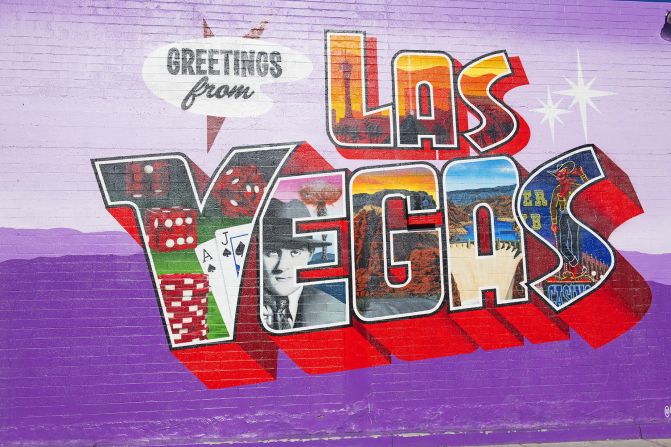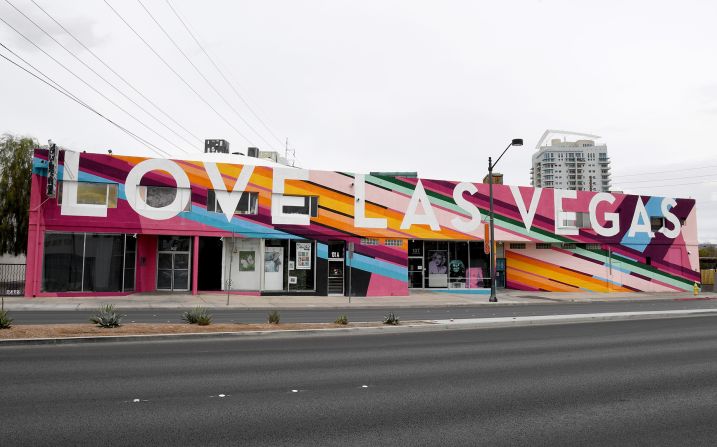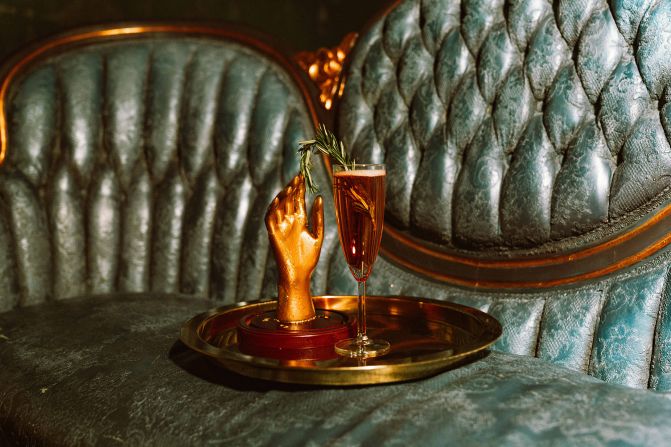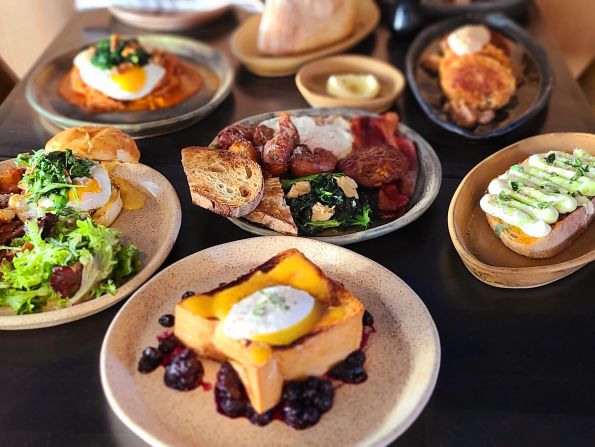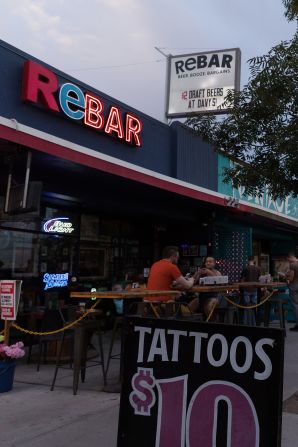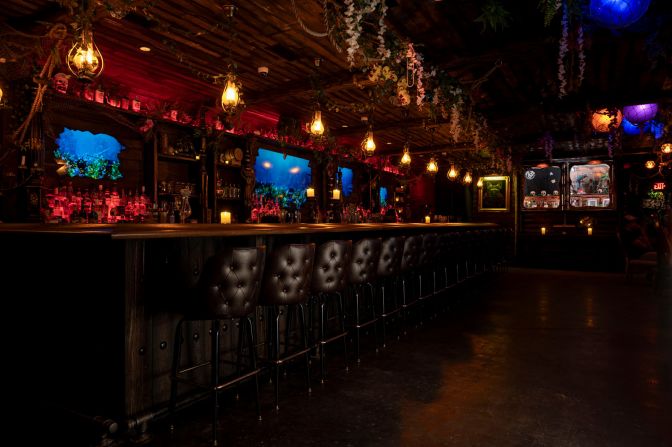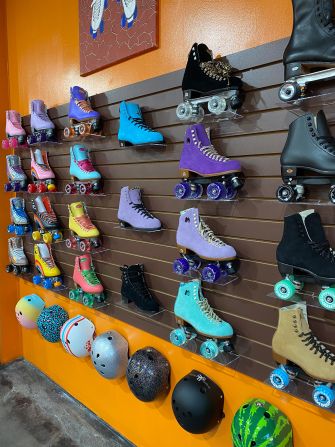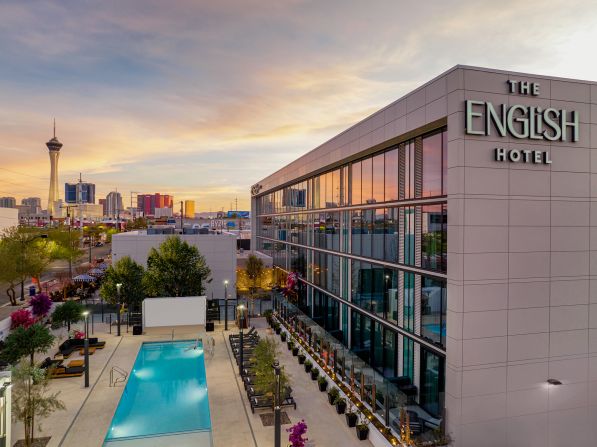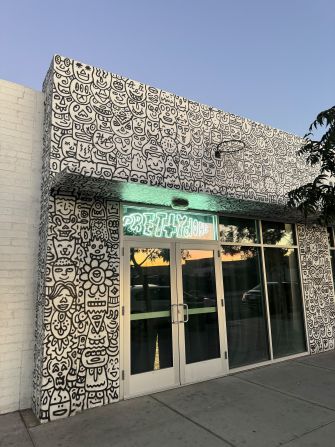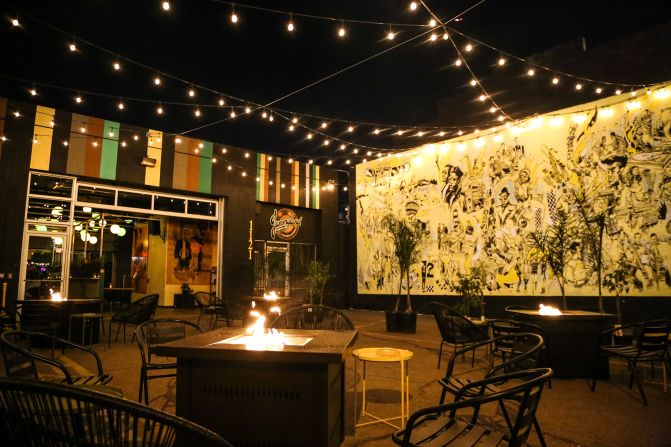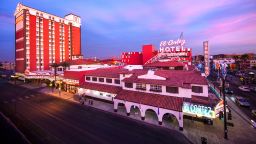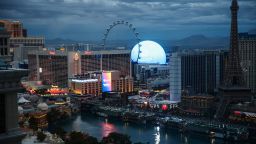Editor’s Note: The CNN Original Series “Vegas: The Story of Sin City” showcases the heart and history of one of America’s most beloved and notorious cities. Tune in Sunday, March 17, at 10 p.m. ET/PT on CNN.
Visitors love Las Vegas for the glitz, glam and garishness of the resorts that line the 4.2-mile Las Vegas Strip, but the most exciting neighborhood in the city right now is all about art.
This area, fittingly called the Arts District, has become a haven for local creatives.
It’s a hotbed of culinary excellence, visual spectacle, digital design and immersive theater. It’s home to one of the city’s most popular restaurants, several cult-favorite bars and breweries, one-of-a-kind shopping and a boutique hotel. It’s even got the city’s only indoor half-pipe.
In a town synonymous with flashing neon, blaring slots and other electronic marvels, the Arts District continues to captivate with seemingly boundless achievements of the human mind.
It also happens to be largely a mystery to those from out of town.
There’s no formal data on how many of the 40.8 million visitors to Las Vegas in 2023 made it to the Arts District. Whatever the number, it’s a fraction of the visitors who arrive in town, check in at a hotel on the Strip and never venture more than a short walk or rideshare away.
Evolution of a neighborhood
The Arts District was officially created in the late 1990s. Back then, it received the nickname 18b, owing to an 18-block area bounded by Hoover Avenue, Colorado Avenue, Las Vegas Boulevard, Commerce Street and 4th Street. Over time, the neighborhood has grown beyond these boundaries.
Today it loosely encompasses about 25 to 30 blocks (depending on whom you ask) south and west of Downtown.
In the beginning, the neighborhood revolved around a destination called The Arts Factory, a circa-1920s building that was repurposed to hold studios for more than 30 artists.
First Friday, a street fair and gallery crawl on the first Friday of every month, started in 2002 and was designed to get people into the area.
Gradually, in the 2010s, the Arts District started growing.
The first inflection point came in 2013 when sisters Christina and Pamela Dylag opened the Velveteen Rabbit, a laid-back cocktail bar on Main Street. Another came in 2016, when Derek Stonebarger opened ReBAR, a dive bar inside an antique store practically across the street.
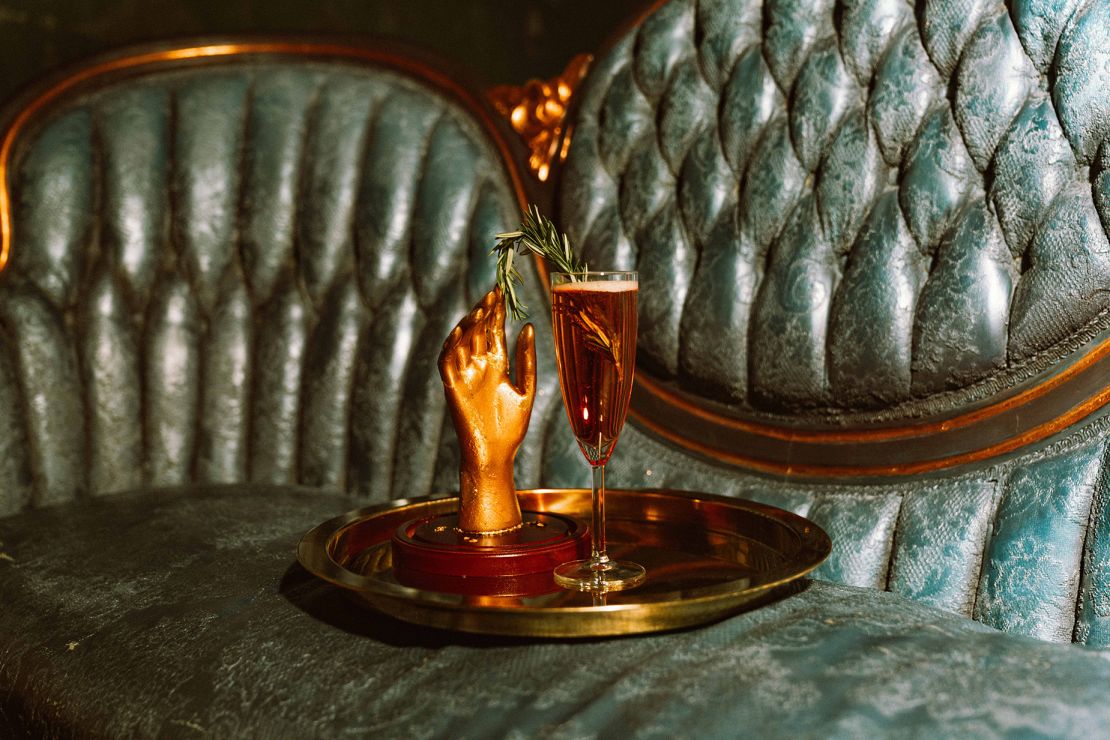
The modern era began in 2018, when chef and Las Vegas native James Trees opened an Italian restaurant named after his great aunt: Esther’s Kitchen.
With its handmade pastas and obsessive selection of amari behind the bar, Esther’s became a sensation practically overnight. In 2020, Trees was named a finalist for the James Beard Award: Best Chef Southwest.
During the Covid-19 pandemic, he became beloved among locals for take-home pasta kits and a village of converted greenhouses for al fresco, socially distanced dining out back. By early 2023, it was harder to get a reservation at Esther’s than it was to get one at many high-end restaurants on the Strip.
That’s when Trees decided to expand.
Instead of adding to the original location’s 58-seat dining room, he bought the circa-1943 Retro Vegas building on the corner of Main Street and California Avenue. The new $6 million digs, which opened March 8, seat 160 in the dining room and 27 at a standalone bar. The new kitchen is twice the size of the original restaurant.
Perhaps most importantly, Trees said that when dinner service ends around 11 p.m. every night, the new location will stay open with a limited menu until 2 a.m., a first for a restaurant in this part of the city.
“The new number of tables and [the new extended] hours aren’t to add more covers, we just want to allow people to actually be able to get a reservation, then come and spend more time and enjoy themselves,” he said.
All about passion
Esther’s Kitchen isn’t the only passion project in the Arts District; over the last few years, dozens of shops and other destinations have put down roots in the neighborhood, too.
Take Fresa’s Skate Shop, home to the only indoor half-pipe in Las Vegas. Owner Amanda Quintanilla, who is from El Salvador, started the Main Street shop in 2022 as a place to support the local roller-skating and rollerblading communities. Today, the store sells dozens of different skates and blades and welcomes skaters to come and use the ramp for $15 per person per hour. Fresa’s rents skates and blades, too.
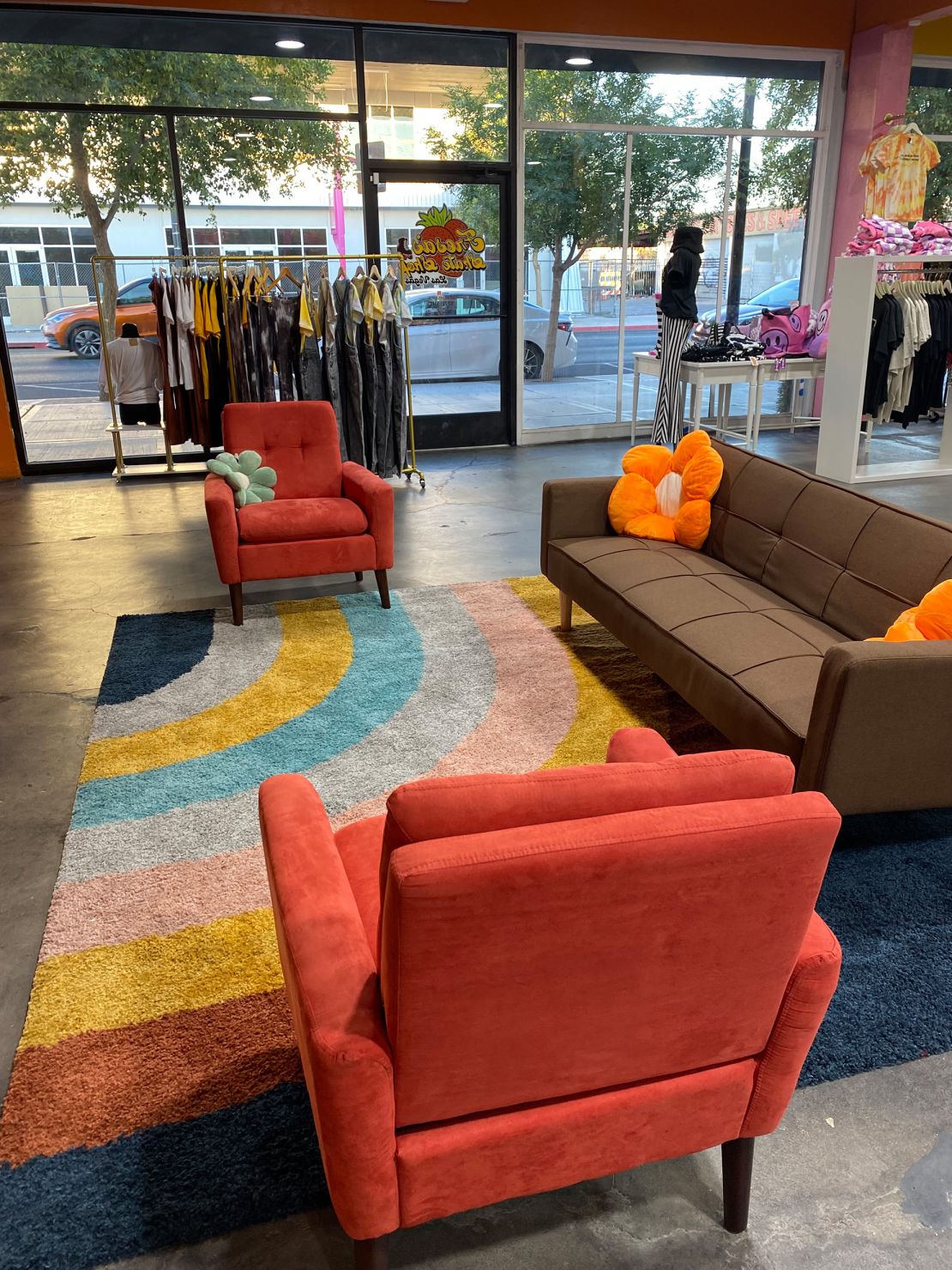
“When I started skating [during the pandemic], the Arts District was the place to come and skate and hang out with other people who were into the scene,” she said. “It’s still the place to come and skate and connect with other people in the community, and now we are a huge part of that.”
At Spilled Milk, a home store on Commerce Street, guests can purchase funky glassware, colorful candleholders, pots in the shape of animal heads and exclusive items from local ceramicists.
Owner Kori Cortez opened the store in February after years of pop-ups at which she sold her own macrame rainbows and other original wall-hangings.
“I developed a love [for] and connection to the Arts District,” said Cortez, who previously played bass in an electronic rock band. “The murals, the coffee shops and the artsy people — I didn’t want to be anywhere else.”
Even veteran hospitality personalities are getting in on Arts District action.
Chef Wolfgang Puck is a co-owner of 1228 Main, a bistro that opened in July, and locals line up on weekends for pastries and loaves of freshly baked bread. The English Hotel, which opened in 2022, bears the name of celebrity chef Todd English.
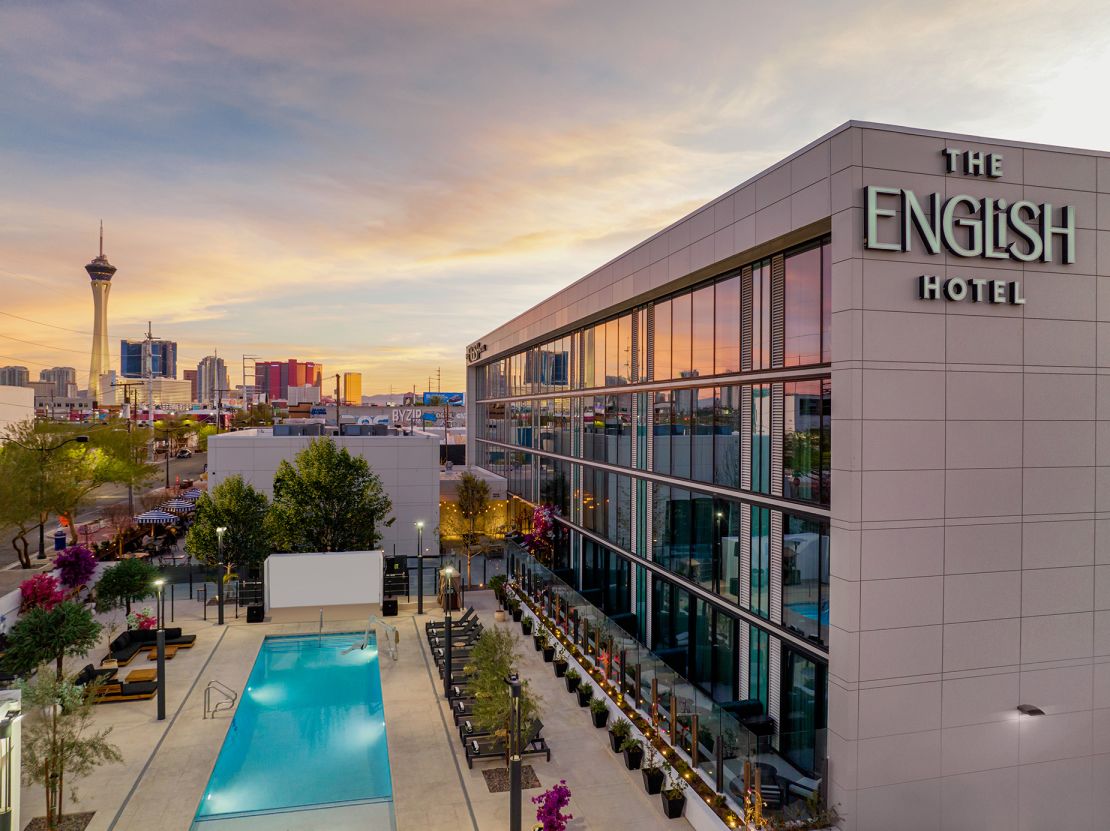
Of course, art is still the main driving force behind everything in the neighborhood.
The Arts Factory remains the geographic and creative center, with artisans ranging from painters to jewelers keeping studios inside. Nearby, the “Greetings from Las Vegas” mural was painted in 2020, and it is now one of the most photographed destinations in the entire city.
Galleries span the gamut from cutting edge NFTs (the JRNY Gallery) to more conventional contemporary art (the Priscilla Fowler Fine Art Gallery). Geller Gallery, set to open on Commerce Street in March, specializes exclusively in imported art.
There’s also a shop where fans can purchase original work, prints and merchandise from Adam Rellah, the man behind the modern art brand Pretty Done. Rellah opened the storefront in August after painting murals all over the city. He said he didn’t even think about opening anywhere else.
“Main Street is the new Downtown,” he said. “Las Vegas is small, so there aren’t other places that embrace weird art, creativity, uniqueness and individuality. It’s like we set ourselves up for this [Arts District] revival. I’m glad it’s becoming what it is now.”
Theater is alive and well in the Arts District, too.
The LaMarre Theater is the only free-standing theater in Las Vegas with Black owners and operators, and the Majestic Repertory Theatre continues to generate buzz for immersive performances that make the audience part of the show. The Cockroach Theater (yes, that’s really its name) is the second stage of the Vegas Theatre Company and spotlights emerging thespians.
Nightlife hot spots
The Arts District also has built a reputation for its eclectic nightlife—a scene that is more loungey, vibey and down-to-earth than the thumping and spendy nightclubs on the Strip.
Velveteen Rabbit and ReBAR were pioneers in this space, and subsequent additions such as Jammyland (with a Jamaican motif), Silver Stamp (with a robust beer menu), and Nightmare Café (a horror-themed cross-between TGI Fridays and Spirit Halloween) laid the groundwork for further innovation.
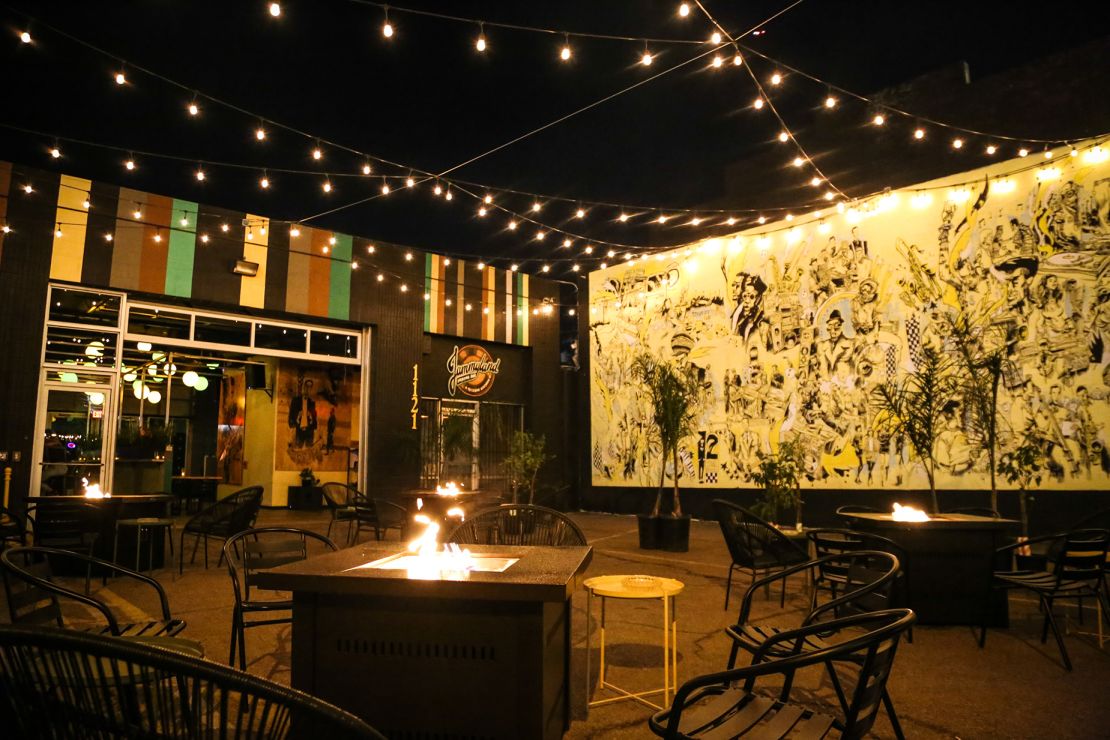
18bin, a newish outdoor bar just east of the Arts Factory building, is always hopping, even at noon on a Friday.
The past six months have seen other noteworthy newcomers to Arts District nightlife.
Most recently, the vintage store Vintage Vegas opened a 1980s-themed cocktail lounge on March 1 stocked with barware and other period pieces guests can buy.
At Liquid Diet, accessible through an alley or unmarked door off Commerce Street (look for the mural of a bloody hand), co-owners Brett Pfister and Patrick Mannion list the nightly menu on handwritten pieces of brown butcher paper hanging from the bar, and they serve cocktails in mismatched ceramics and glassware curated from local antique stores.
At Stray Pirate, a pirate-themed bar, portraits on the walls depict dogs dressed as scallywags (see what they did there?), and booze-heavy drinks will have you wondering whether the digital images of whales and sharks you can see through “windows” behind the bar are real.
Chris Gutierrez, general manager and partner, said the bar is the perfect representation of what the Arts District is all about.
“When we were contemplating where to build Stray Pirate, the Arts District was the perfect location for our concept: A walkable community full of other food and beverage experiences that push each other to build on creativity,” said Gutierrez, who is famous around Las Vegas for the cocktail programs he created at bars such as Corduroy, Oak & Ivy and Atomic Liquors.
“Our concept really focuses on not only craft cocktails, but is an immersive, fun, tropical cocktail bar. Ultimately, the Arts District’s ethos and Stray Pirate are aligned in providing creative cocktails, service and experience for our guests.”
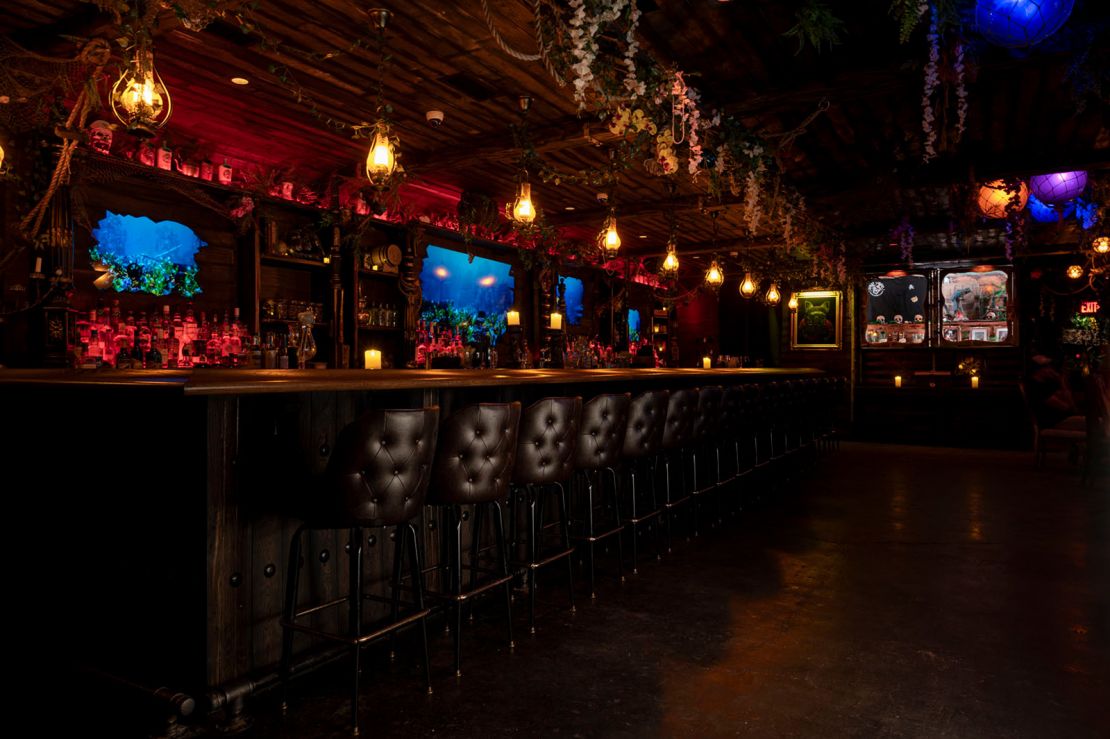
The Arts District also has birthed its share of craft breweries and wine bars in the past few years.
On the brewery front, locals love Nevada Brew Works (and the adjacent Soul Belly BBQ), and the slightly more hipster Able Baker Brewing, which also serves food. For oenophiles, The Wine Garden offers monthly classes where guests can sip wine and create flower crowns, while Garagiste offers tastings and light snacks in a modern space.
What’s next
Evolution of the Arts District will continue into the second half of 2024 and beyond.
Toward the southern end of the neighborhood (or just beyond it; again, depending on whom you ask), the Atomic Golf driving range is slated to open in March.
Later this spring, Trees is planning to launch two additional experiences at the new Esther’s: a second story as-yet-unnamed cocktail lounge that overlooks the main dining room, and an enclosed courtyard that would host farmers’ markets on Sundays. In the fall, he is planning to open a French bistro and bar in an old service station several blocks south, and a prix fixe, fine-dining restaurant in the location of the old Esther’s.
Also this summer, Nevada H&C Distilling, renowned for its Smoke Wagon Bourbon, was expected to open a new facility on the corner of Wyoming Avenue and Industrial Road. The new digs were expected to comprise an expansive production area, as well as a gift shop where visitors can purchase products and check in for tours.
On a longer timeline, the city has green-lighted the construction of more than 3,000 new living units in and around the Arts District — developments that most certainly will change the complexion of the neighborhood once again.
In a city that reinvents itself constantly, it’s good to know the next evolution will be inspired by art.
Matt Villano, a writer and editor in Northern California, has covered Las Vegas for 20 years.
